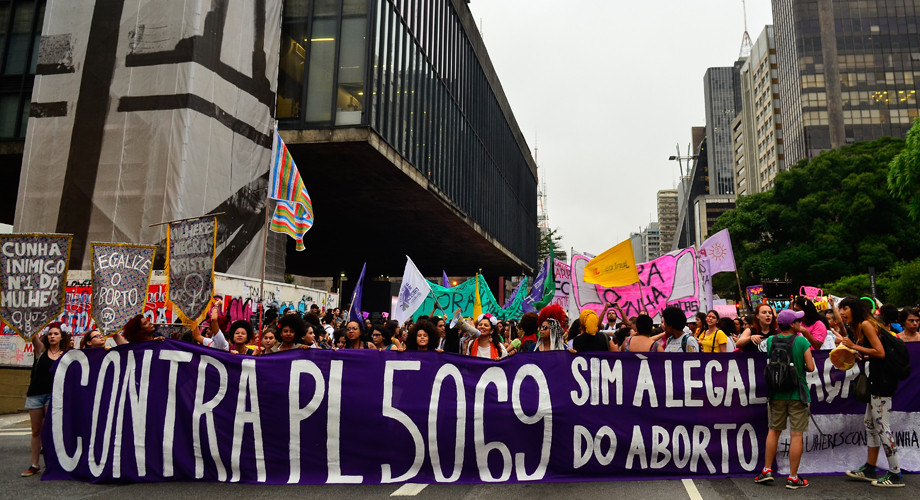The “Spring” of Women’s Movements in Brazil
This was originally posted in Shameless Magazine.
 Image Courtesy of Agência Brasil Fotografias
Image Courtesy of Agência Brasil Fotografias
If you are following the latest political news from Brazil you may have noticed that women are taking the frontlines of the legislative battle to uphold their already limited sexual and reproductive health rights. The background of this process is not a new one. A conservative wave has taken over Congress and, unfortunately, many of the bills being proposed are intended to take away many of the current guaranteed rights, which has raised the strongest wave of women’s politicization in the last twenty years.
Many of those aforementioned bills are a great set back to human rights in Brazil, specially for minority groups. Examples of that are the reduction of the age of imputability, the dismantle of the firearms legislation (to allow people who have committed crimes and are currently being trialed to own firearms), the approval of the construction of a 400 million dollar mall for Congress members, or the attempt to “redefine” marriage because the Supreme Court has ruled in favour of marriage equality. But, the straw that broke the camel’s back for women in the country was the bill that would make it mandatory for women to have to go to the police stations, first, instead of the hospitals in cases of rape and sexual assault, putting at risk the evidence collection process that usually happens in the hospitals, but most importantly, putting at risk the health and well-being of victims of sexual violence. The only ones who benefit from this legislation are rapists… Because the clear consequence of this bill is an increase in impunity and under-reporting.
 Image Courtesy of Agência Brasil Fotografias
Image Courtesy of Agência Brasil Fotografias
The main argument from this conservative group from the Congress is that issues like abortion or allowing access to contraceptive hurts their Christian morals and values. However, the protesters and critics of those politicians claim the inherent hypocrisy in this discourse when most of these Congressmen are being investigated for corruption charges internally and by Interpol. The Congress’ president (an analogous position to speaker of the house), is being charged by the attorney-general and Interpol for having over 50 million dollars of “unexplained” funds in Switzerland.
With that environment, women from all over Brazil joined forces to march and protest to demand that their rights are upheld and to demand the dismissal of the President of the Congress for corruption and embezzlement charges. They are also asking for better family planning services. It has been the largest women-led protest in the country with cities seeing 15 thousand to 30 thousand women protesting. An online movement asking women to share their harassment and violence stories gathered more than 82 thousand stories, tweets and notes in one day. Internally, media has starting to call this movement the “Feminist Spring” – in relation to the Arab Spring and the protesters’ demands for nothing more than their Human rights.
 Image Courtesy of Agência Brasil Fotografias
Image Courtesy of Agência Brasil Fotografias
Much like the Arab Spring, it is not the first time that feminist movements and organisations in Brazil have protested for human rights, but this time it seems the support goes beyond the groups and into the mainstream. Even within religious and conservative groups there was support for the demonstrations given the outlandish nature of this bill and its potential ramifications. In the end, there is hope that human rights will keep progressing and this process has helped forge a stronger and more widely supported women’s movement in Brazil. Hopefully, that will also translate into the election of political representatives that are more aligned with the ideals of a more progressive, inclusive country that values and respects women’s rights.




